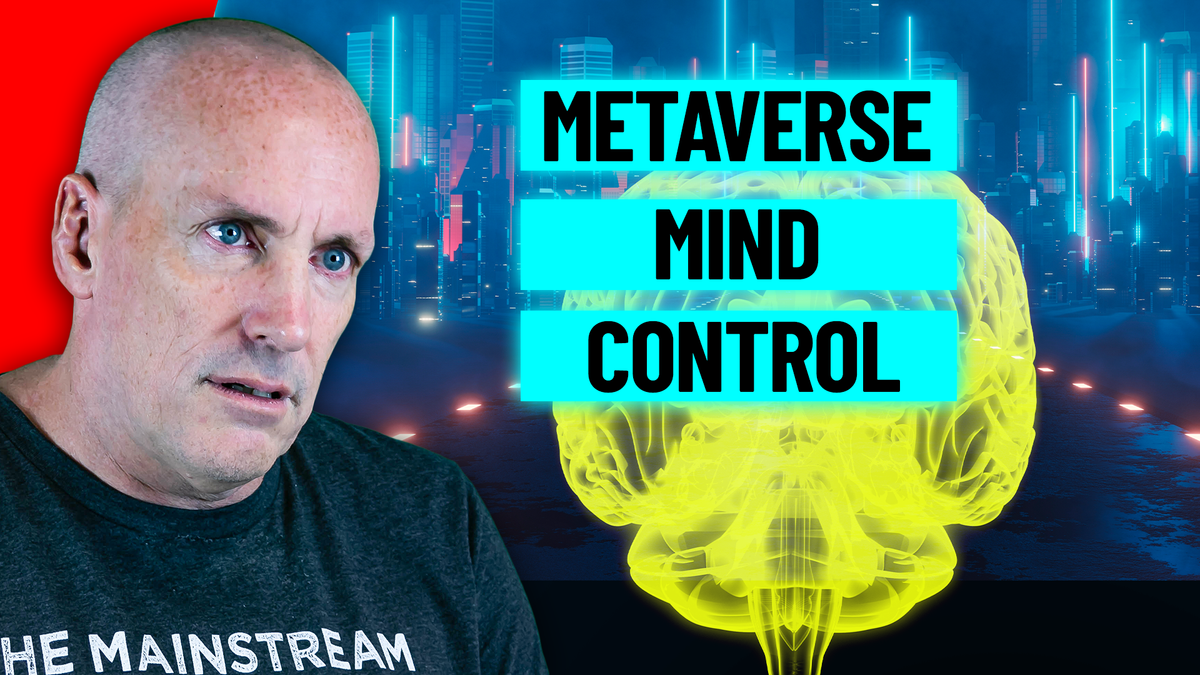The Dark Reality of Virtual Reality

Chanelle Siggens strapped on an Oculus Quest virtual reality headset to play her favorite shooter game, Population One. Once she turned on the game, she maneuvered her avatar into a virtual lobby in the immersive digital world and waited for the action to begin.
But as she waited, another player’s avatar approached hers. The stranger then simulated groping and ejaculating onto her avatar, Ms. Siggens said. Shocked, she asked the player, whose avatar appeared male, to stop.
“He shrugged as if to say: ‘I don’t know what to tell you. It’s the metaverse — I’ll do what I want,’” said Ms. Siggens, a 29-year-old Toronto resident. “Then he walked away.”
In July, Mari DeGrazia wore a haptic vest — which relays sensations through buzzes and vibrations — to play Population One. When another player groped her avatar’s chest, “it felt just awful,” she said.
These are just two examples of women feeling like they’ve been assaulted in the Metaverse.
But the oxymoron of virtual-physical assault aside, the bigger problem of the Metaverse is undoubtedly its ability to rape the human mind.
Let’s start at the beginning: the ‘metaverse’ — an Internet platform that allows social communication, crypto payments, and overall connectivity to transcend into a virtual platform. You can now travel and transact, meet-and-greet, and spend and shop without entering the physical world.
It may sound exciting, but the requirements for morphing our reality also pose an incredible danger to mental wellness, data security, and sustainable communication among its users worldwide.
You can learn more about “Metaverse: The Dangers of VR in the Wrong Hands” about the features and development of metaverse. To make a critical conclusion whether or not Metaverse is a game-changer, let’s look at the potential benefits and drawbacks of the metaverse.
Where Man Meets Machine: An Overview of Metaverse
Have you seen sci-fi movies like “Ready Player One,” “Free Guy,” or Black Mirror Episodes entitled “Playtest” and “Striking Vipers”? Well, these futuristic pieces of literature represent the metaverse — a tech evolution that sounds so promising yet dystopian simultaneously.
“Meta” comes from a Greek prefix, which means “after” and “beyond.” This word implies perceiving the thing from a higher perspective, like metamorphosis for “higher form” or “metanoia” for “beyond spiritual discovery.”
So, “metaverse” is a combination of “meta” (beyond) and “universe”; the term underscores a futuristic society inside the Internet of things (IoT), made up of persistently shared 3D virtual spaces, linking into a virtual universe.
In a technical sense, there are two significant backbones of a metaverse: augmented reality and virtual reality.
Augmented Reality + Virtual Reality = Metaverse
Augmented reality (AR) enhances the real world by overlaying computer-generated content in our field of vision. It operates to supersede without modifying or changing the real-world content. Using Google Translate is the best example of AR, which identifies and translates a particular language. Other AR examples include Google Sky Map, Pokemon Go, Layar, Spotcrime, and Cross Air.
Similarly, Virtual Reality (VR) hosts almost “real” or believable experiences. It creates its spectrum in and of itself, where contents mirror a 360-degree real-world, purely synthetic. This technology produces a realistic sound, feel, and atmosphere.
The Development of the Metaverse
It took more than 30 years for the metaverse to develop, and it all began with the idea of science fiction writer Neil Stephenson using the term “metaverse” to describe a 3D virtual space in 1992, following the launch of the World Wide Web in 1989.
In 2003, Philip Rosendale and his team followed and built Second Life, an online virtual platform. And then, after the span of a decade, Roblox got into the public in 2006, the first crypto blockchain, Bitcoin, was introduced in 2009, and Facebook acquired “Oculus,” the virtual reality hardware, in 2011
Pokemon Go took the world by storm through easy access to augmented (AR) technology using smartphones launched in 2015. A year after, the introduction of novel concepts like virtual concerts and tours through Fortnite advanced the publicity of the metaverse.
Ethereum also contributed to cryptocurrency by training and trading mythical creatures through “Axie Infinity,” launched in 2018. And last year, Mark Zuckerberg revealed his 3-year plan of converting Facebook into a metaverse platform by 2025, which begins by rebranding the company’s name to ‘Meta.’
In an interview with The Verge, Zuckerberg revealed that metaverse is “going to be a big part of the next chapter for how the Internet evolves after the mobile Internet.” The next chapter he refers to is the development of AR glasses through Ray Brand Stories and Ocular VR headsets.
Metaverse: The Pros and Cons
The Benefits
Promotes Fast Development
Metaverse promotes fast development across medical, arts and fashion, architecture and engineering sectors, and many more.
For instance, constructing an urban city could project a sustainable, measurable, and actual development pointing out issues and at-stakes through virtual planning. Additionally, virtual training could lead to many advanced training and learning processes, especially in the medical field.
Opens Cashless Society
Did you know that metaverse is preparing everyone for a cashless society? Yes. And in fact, our gradual inclination to wire transfers and bitcoins for payment transactions has sped up the revolution to the metaverse.
Cashless societies promote lower transaction fees, more secured data, and decentralized payment systems through cryptocurrencies. Bear in mind that there’s no central bank or institutions in control. Hence, it only promotes a peer-to-peer transaction that follows the relationship of trust.
Welcomes New Innovation
In a virtual society, you can be yourself. You do you. You will have no boundaries, and you can meet new professionals who collaborate and are open to your aspirations.
So, here comes innovation in the context of communication and business opportunities. Unlike a text-and-call setting, Metaverse allows a real virtual meeting, in any environment, anywhere in the world, with much more immersive, creative, and targeted interactions.
Want to have your next team meeting on Mars? Gottit. I prefer going to Paris for champagne and macarons – it’s easy in the Metaverse!
The Drawbacks
Creates Real Disconnection
Metaverse may be a place where you can create a version of your world, but this could also incite delusion and other behavior that would disconnect you from the real world.
Virtual gaming and socializing could develop addiction and social anxiety. Just imagine if you’re staying inside a massive crowd of avatars where you can pretend to be someone. You will get judged or embarrassed, and eventually, you will adopt culture from your reality.
According to Psychology Today, there’s growing evidence of an association between digital use and clinical problems associated with delusions and hallucinations. Schizotypal traits predicted game-playing—that is, those with higher levels of schizotypy were more likely to use this digital technology.
AI Replaces Human Labor
Metaverse could also decrease demand for human capital following AI promotion in big commercial manufacturers.
The World Economic Forum’s “The Future of Jobs Report 2020” suggests that AI will replace 85 million jobs worldwide by 2025. In the same timeline, it would also create 97 new million jobs.
Now, why could this happen?
Many experts believe AI could save humans from tedious, repetitive tasks. It also saves the expected turnaround time since humans can control the robot’s speed and productivity. Lastly, the onset of the pandemic gave companies a reason to automate the works of their laborers, supposedly to reduce health costs related to COVID-19 “safety” and make a speedy delivery of goods and products.
Higher Risks on Data Privacy and Security Issues
Data privacy and security issues are top concerns when discussing metaverse.
It’s like we’re getting into a social contract – we surrender our data and scan our sensory features to access the virtual world. But the thing is, the contract is non-negotiable, and our data could be leaked at any time.
Case in point: Facebook’s admission about password security lapse worried millions of users. Mark Zuckerberg’s sorry was never enough.
On May 16, 2018, Christopher Wylie, a Canadian data consultant formerly working for Facebook-Cambridge Analytica, revealed the Facebook scandal before a hearing in the Senate Judiciary Committee. He exposed that Facebook has “exploited particular vulnerabilities in specific segments to send them information that will remove them from the public forum, and feed them conspiracies, and they’ll never see mainstream media.”
Facebook has disclosed details of a security breach that affected 50 million users. The “view as” feature allowed attackers to “access tokens” to gain control of other users’ accounts.
Does this sound like the future you want?
Promising yet uncertain; empowering yet destructive; secured yet challenged — these are the thoughts we carry along as we gruel towards a virtual society. It is as if we’re building a new world for people who are not us.




